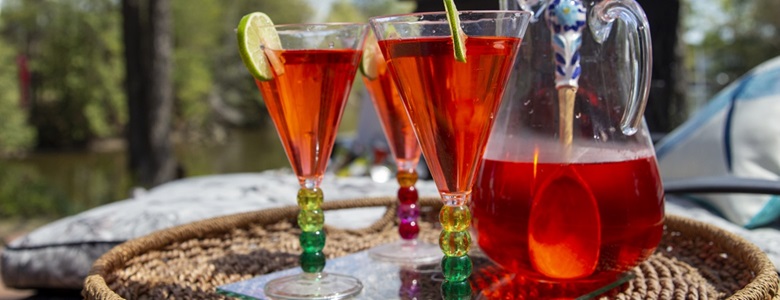The MBAR, or Mixed Beverage Annual Review, is the name of a report that documents the food and beverage sales of mixed-beverage licensees. These licensees, who include restaurants, caterers and clubs, are required by law to submit an MBAR to Virginia ABC once a year on the anniversary of the issuance of their license.
Online MBAR Submissions
Virginia ABC uses the VAL system for online MBAR submissions. Please refer to our MBAR tutorial (PDF) for step-by-step instructions on submitting MBARs through VAL. You may also download the MBAR Mail-in Submission Instructions (PDF).
New User?
If you are new to VAL, you can begin using the system as soon as you create an account. Begin the account setup process by clicking on "Sign Up" at VAL Login. For guidance, see our tutorials on creating an account and other topics.

Food-Beverage Ratio Overview
When it comes to operating your mixed beverage business in compliance with the commonwealth’s alcohol regulations, the food and beverage ratio is paramount.
For the mixed beverage licensee, current Virginia ABC regulations stipulate that a minimum 45 percent of the total gross sales must be from food and nonalcoholic beverages. Conversely, alcohol sales should comprise no more than 55 percent of these sales.
In addition, monthly sales of food prepared and consumed on your premises must be at least $4,000, of which no less than $2,000 shall be in the form of meals with substantial entrees.
It sounds simple enough. But sometimes restaurants do not meet these minimum requirements. Your special agent is ready to help you avoid the costly consequences of not meeting the food-beverage ratio. In addition to ABC's standard inspections, special agents visit mixed beverage licensees during nontraditional meal times to advise you on ways you can follow the “45-percent rule.”
Agents should be able to order a menu item anytime during your operating hours to ensure food sales are being conducted in the proper way. (Prepackaged snacks aren’t the intent of the regulation regarding the 45 percent rule.) Agents also want to see food in your freezer and other food storage facilities.
Although buffets are convenient, they can be danger zones for the mixed beverage licensee trying to stay in compliance. It is incumbent upon the licensee, if using food from a buffet to meet the food beverage ratio, that the buffet fare is actually consumed by a customer. You must be able to document this.
When your special agent arrives for his or her visit, be prepared to discuss various points of your business. Keep regular, accurate records on site, that are immediately available for review. Meeting the food-beverage ratio requirement is important if you wish to avoid fines and suspension or revocation of your license.
When your business is operating correctly it’s good for you, and it’s good for Virginia’s business.
"Cocktails to Go" and the Food-Beverage Ratio
- For the completion of the MBAR, sales of mixed-beverages-to-go, or “cocktails-to-go,” should be recorded in the “miscellaneous sales” category.
- Sales of mixed-beverages-to-go, or “cocktails-to-go," cannot be counted toward the 45 percent food / 55 percent liquor ratio requirement.
- Licensees must keep separate and accurate records to track all sales of mixed-beverages-to-go, or “cocktails-to-go." These records should be available for inspection by special agents.

Need Help?
Special agents are the primary resource for questions related to operating a business with an ABC license. Contact a special agent via your regional ABC office. For step-by-step assistance in banquet licensing, see our Licensing Wizard.Training
Virginia ABC offers free online training to help managers, sellers and servers to become more responsible and better understand ABC laws, rules and regulations. For more information, contact Community Health & Prevention, (804) 977-7440 or [email protected].


